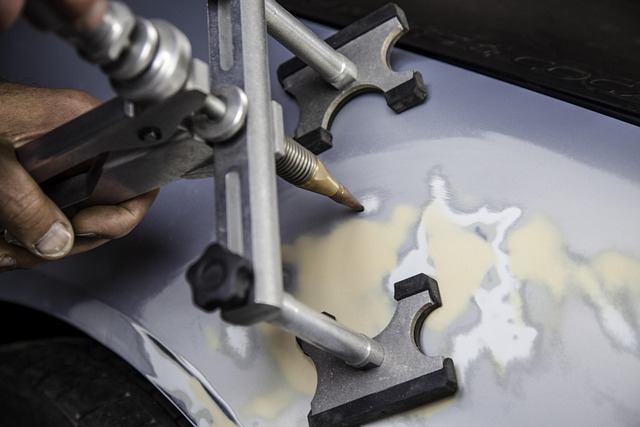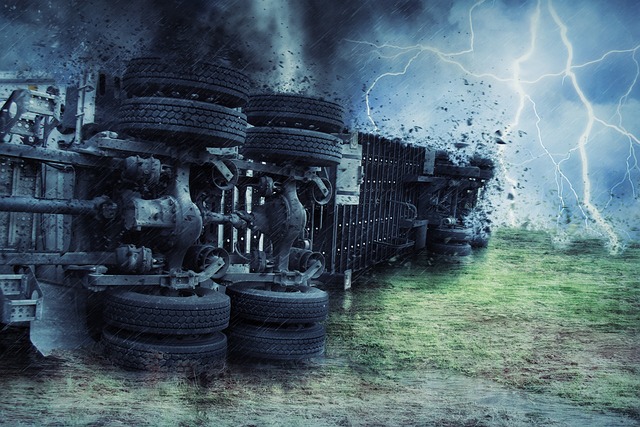After a car crash, navigating an auto accident claim for property damage requires understanding your rights and insurance policy specifics. Begin by assessing damage, gathering evidence, and exchanging information with other drivers. Initiate the claims process with your insurer, providing detailed reports and repair documentation. For complex cases or to maximize compensation, consult a personal injury lawyer specializing in auto accident claims. Accurate record-keeping is vital for ensuring fair settlements or court representation if needed.
Navigating an auto accident can be stressful, but understanding your rights and options is crucial. If your vehicle suffered damage in a collision, you may be eligible for compensation through your insurance policy’s vehicle damage coverage. This guide breaks down the process of filing a successful auto accident claim, from grasping the fundamentals to maximizing your potential payout. By following these steps and considerations, you’ll be better equipped to navigate this complex landscape.
- Understanding Auto Accident Claims for Vehicle Damage Coverage
- Steps to File a Successful Auto Accident Claim
- Maximizing Your Compensation: What to Consider After an Accident
Understanding Auto Accident Claims for Vehicle Damage Coverage

When you’re dealing with an auto accident, navigating the process of filing a claim for vehicle damage coverage can seem daunting. Understanding your rights and options is crucial to ensuring you receive fair compensation for your vehicle’s repair or replacement. An auto accident claim for property damage is distinct from personal injury claims, focusing specifically on the financial impact of the incident on your vehicle.
In many cases, your vehicle insurance policy includes comprehensive coverage that protects against damages incurred in an auto accident, even if it was partially your fault. This coverage extends to both collision and non-collision events, such as vandalism, natural disasters, or a slip and fall incident involving your vehicle. Knowing the specifics of your policy, including deductibles and coverage limits, is essential before initiating a claim. Property damage claims typically involve documenting repairs, gathering estimates, and submitting the necessary paperwork to your insurance provider for review and approval.
Steps to File a Successful Auto Accident Claim

After a car crash, filing an auto accident claim for vehicle damage coverage is a crucial step to ensure you’re compensated fairly. The first step is to assess the extent of the damage and gather evidence such as photographs and reports from emergency services or police officers at the scene. It’s also vital to exchange information with other drivers involved, including their names, contact details, insurance providers, and policy numbers.
Next, contact your insurance provider to inform them about the incident and begin the claims process. They will guide you through specific steps, which often include filing a detailed report outlining the accident circumstances, providing documentation of repairs or replacements needed, and possibly requiring you to visit a designated repair shop. For more severe cases involving truck accident injuries or property damage claims, it may be beneficial to consult with a legal professional who specializes in personal injury claims to ensure your rights are protected throughout the process.
Maximizing Your Compensation: What to Consider After an Accident

After a car accident, it’s natural to focus on your safety and that of others involved. However, maximizing your compensation from an auto accident claim is crucial. The first step is to assess your damages thoroughly; this includes not just vehicle repairs or replacement, but also any medical expenses, lost wages, and pain and suffering. Documenting everything—from repair estimates to hospital bills, and even the impact on your daily life—will strengthen your case.
Consider seeking advice from a personal injury lawyer who specializes in auto accident claims. They can help you navigate insurance coverage disputes and understand the scope of your policy. Remember, insurance companies often aim to minimize their payouts; a legal professional can ensure you receive a fair settlement or take your claim to court if necessary. Accurate record-keeping and expert guidance are key to achieving the best possible outcome for your accident settlements.
After navigating the complexities of understanding auto accident claims and taking the necessary steps to file, you’re now equipped with knowledge to maximize your compensation. Remember that each situation is unique, so seeking legal advice is crucial for the best outcome. An auto accident claim can be a game-changer in terms of restoring your vehicle and financial security, so don’t let the process become a labyrinthine enigma.






